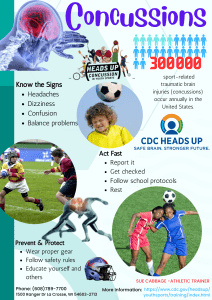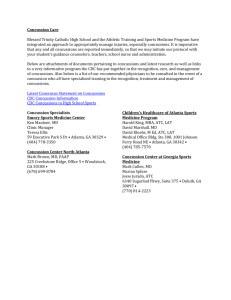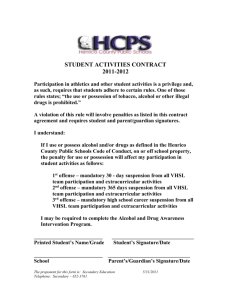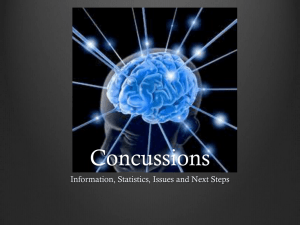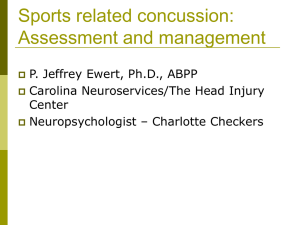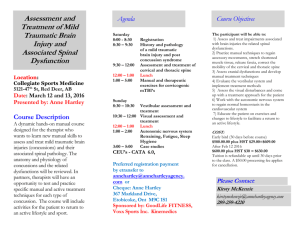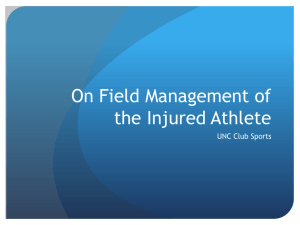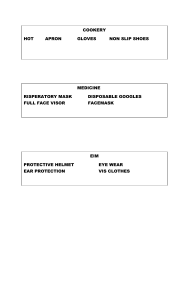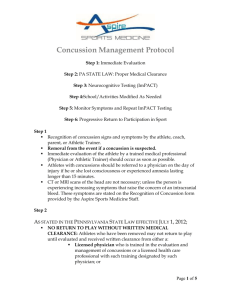From The Nurse`s Clinic
advertisement
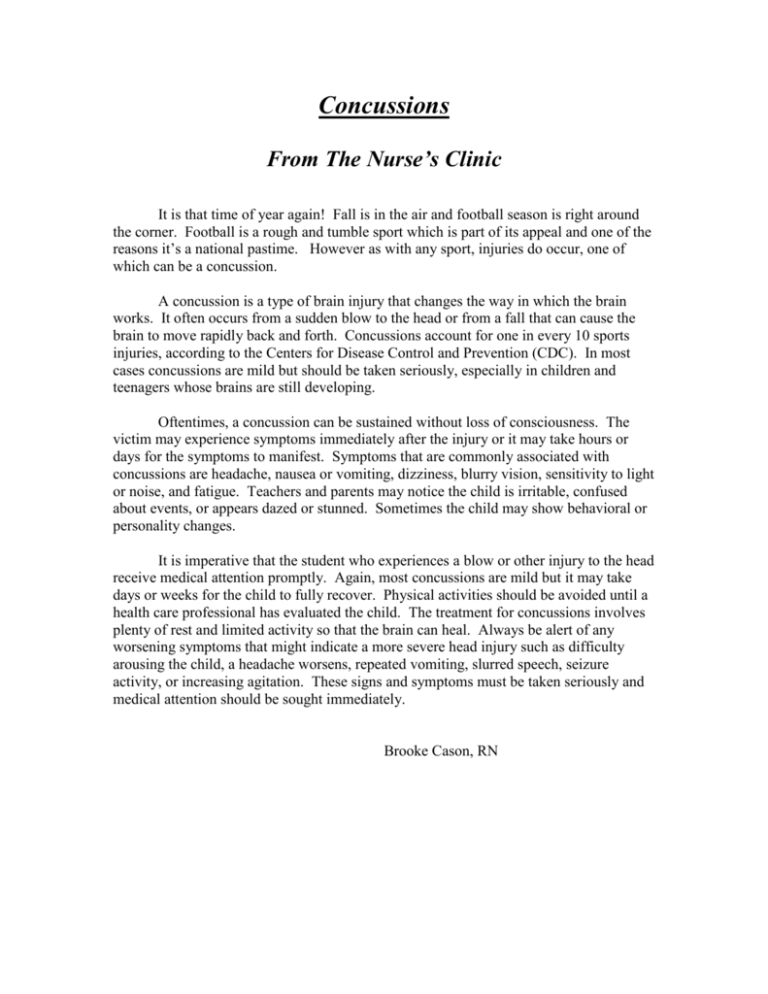
Concussions From The Nurse’s Clinic It is that time of year again! Fall is in the air and football season is right around the corner. Football is a rough and tumble sport which is part of its appeal and one of the reasons it’s a national pastime. However as with any sport, injuries do occur, one of which can be a concussion. A concussion is a type of brain injury that changes the way in which the brain works. It often occurs from a sudden blow to the head or from a fall that can cause the brain to move rapidly back and forth. Concussions account for one in every 10 sports injuries, according to the Centers for Disease Control and Prevention (CDC). In most cases concussions are mild but should be taken seriously, especially in children and teenagers whose brains are still developing. Oftentimes, a concussion can be sustained without loss of consciousness. The victim may experience symptoms immediately after the injury or it may take hours or days for the symptoms to manifest. Symptoms that are commonly associated with concussions are headache, nausea or vomiting, dizziness, blurry vision, sensitivity to light or noise, and fatigue. Teachers and parents may notice the child is irritable, confused about events, or appears dazed or stunned. Sometimes the child may show behavioral or personality changes. It is imperative that the student who experiences a blow or other injury to the head receive medical attention promptly. Again, most concussions are mild but it may take days or weeks for the child to fully recover. Physical activities should be avoided until a health care professional has evaluated the child. The treatment for concussions involves plenty of rest and limited activity so that the brain can heal. Always be alert of any worsening symptoms that might indicate a more severe head injury such as difficulty arousing the child, a headache worsens, repeated vomiting, slurred speech, seizure activity, or increasing agitation. These signs and symptoms must be taken seriously and medical attention should be sought immediately. Brooke Cason, RN
